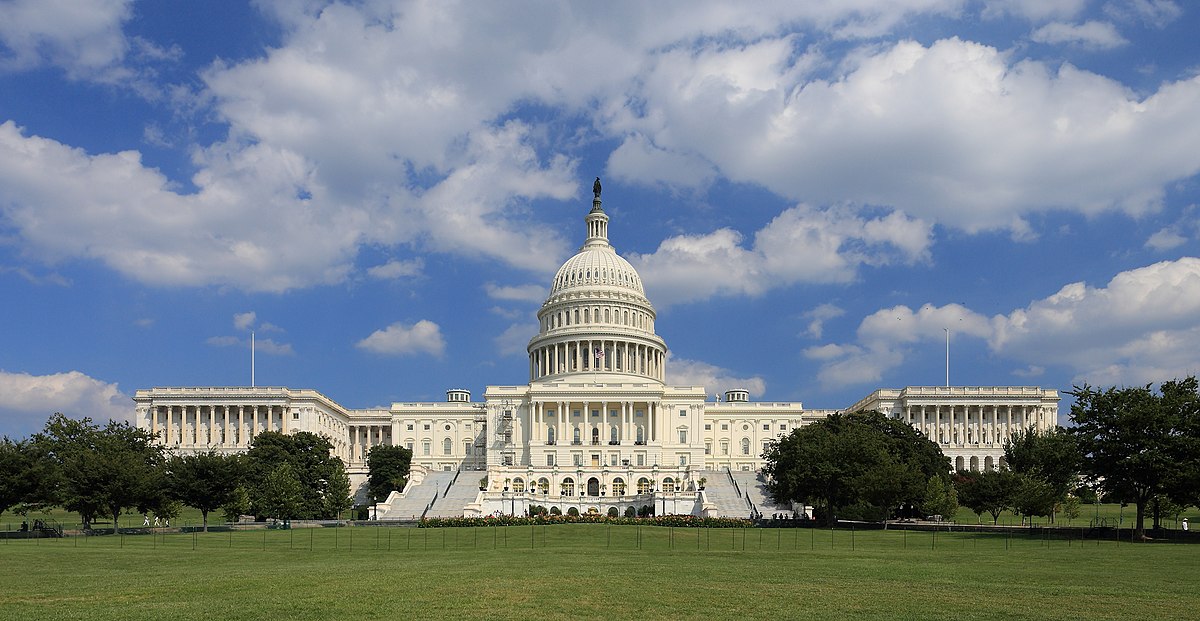Restore The Congress to Counter the President
Posted on March 10, 2015

"US Capitol west side" by Martin Falbisoner - Own work. Licensed under CC BY-SA 3.0 via Wikimedia Commons.
(This originally appeared in The Hill)
In 1989, the first year I arrived in Washington as a staffer to House Minority Leader Bob Michel, the Heritage Foundation released a tome called The Imperial Congress.
In the minds of the authors, Gordon Jones and John Marini, the legislative branch had assumed the dominant power in the federal government. For close to 40 years, Democrats had run the House of Representatives, and towering figures, like Dan Rostenkowski at Ways and Means, John Dingell at Energy and Commerce and Jamie Whitten at the Appropriations Committee, ran the government as their own personal fiefdoms.
Republicans in the House of Representatives had grown increasingly frustrated and radicalized by the arrogance of Democratic power. Newt Gingrich gained fame by spearheading an attack against Speaker of the House Jim Wright, forcing his resignation. The Gang of Seven, a group of freshman Republicans that included now-Speaker John Boehner, drove media coverage of the House banking scandal and other scandals that ended the careers of many members on both sides of the aisle.
The conservative movement and Republicans both agreed that congressional power needed to be diminished, and it became dogma to weaken the power of the representatives of the people.
Five years later, in the iconic Contract With America, Republicans promised to cut the funding of the legislative branch. They pushed to eliminate one-third of the staff, especially of committee staff. They limited the power of committee chairmen by putting a six-year term limit on their service. They pushed for a vote on term limits of all members of Congress.
The appropriations process also faced attack from the Republican leadership. The common joke among conservatives was that there were three parties: Republican, Democrat and Appropriator. The leadership first used spending bills to carry water on authorization items. Tom DeLay was especially aggressive, using a Veterans Affairs and Housing and Urban Development bill to carry riders limiting the ability of the Environmental Protection Agency to enforce environmental regulations.
Conservatives, not without some justification, then attacked the earmarking process that was invented by Democrats but perfected by Republicans. The GOP leadership used earmarks as leverage to pass other legislation, such as trade promotion authority. Getting rid of earmarks became an important cause for the right, and eventually, after the Duke Cunningham bribery scandal and the infamous “Bridge to Nowhere,” the new leadership, led by Boehner, banned the use of them.
And so, here we are today.
Congress has successfully limited funding to itself for the last two decades, and as a result, most of the people running the place are in their 20s. (If you don’t believe me, take a walk around the Rayburn building.) Committee chairmen on either side, while professional and capable, don’t have near the power of those titans from a bygone era. The average tenure of a member of Congress is less than six years.
The Congress as an institution is scorned, not esteemed. The appropriations process has not gone through regular order in a decade. Intense partisanship means the legislative branch can’t stick up for itself as an institution in the battle between the branches.
The Obama administration has exploited the weakness of the Congress. The president’s executive orders on immigration might be unconstitutional, but there is little the Congress can do about it other than shut the government down. The Federal Communications Commission, at the president’s urging, has issued wide-ranging rules on net neutrality, and once again the Congress is tying itself in knots over a response. President Obama asks Congress to weigh in on authorizing military force against the Islamic State in Iraq and Syria, but legislators can’t agree on a response.
Attacking the power of the Congress made sense for the GOP in 1990, when Republicans occupied the White House and a Democrat wielded the Speaker’s gavel. But we live in a new world order.
Republicans haven’t won the popular vote in five out of the last six presidential elections. And the Democrats have only won a majority in two out of the last 10 Congresses.
I think conservatives ought to think less about diminishing the power of the legislative branch and more about diminishing the power of the executive branch. A weakened Congress has proven to be no match for an aggressive and determined president who has determined to do whatever he wants, whenever he wants.
